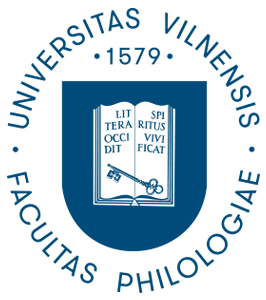The Centre of Polish Studies
At Vilnius University
Invites you to the 6th International Scientific Conference
Borderlands of the Slavic region
at the turn of the 20th and 21st centuries
Language – Society – Culture – Identity
From the series “Slavic Languages from the Sociolinguistic Approach”
Of the Commission for Sociolinguistics affiliated to the International Committee of Slavists
The conference will be held on September 8–10, 2022
At Vilnius University, the Faculty of Philology,
Universiteto str. 3, Vilnius
The conference is concentrated on the concept of the borderlands to show the complexity of today’s Slavic region. Geopolitical changes of the last decade of the 20th century shaped new territorial borderlands in Europe and influenced the sociolinguistic situation of individual Slavic languages. The technological revolution of the 20th and 21st centuries accelerated the globalization of communication patterns, led to the emergence of new types of media, new linguistic genres and forms. Due to the globalization processes, the evolution of the systems of Slavic languages is mainly influenced by the English language. The unlimited flow of ideas and patterns as well as cultural homogenization did not lead to the disappearance of traditionally understood ethnic and linguistic borderlands; however, multilingualism, multiculturalism, and even locality gained a new dimension due to their presence in the virtual world.
In the analysis of the phenomena occurring in Slavic languages at the turn of the centuries, the term “borderland” may refer to a transitional state or area, as well as indicate the hybrid nature of language varieties, methods of communication, etc. Therefore, we propose a broad subject approach through a wide range of the conference presentation topics:
- linguistic, territorial and religious borderlands
- linguistic and cultural contacts within the Slavic community
- contacts of Slavic and non-Slavic languages and cultures
- standard language and dialect, regiolect, sociolect
- rural language – urban language
- identity in a multilingual and multicultural environment
- values shaped on the borderlands
- national, ethnic and folk concepts
- Polish, Lithuanian and European culturemes
- communication on the border of the “real” world and virtual reality
- globalization vs. glocalisation in language and communication
- officiality and unofficiality in a language; private discourse and public discourse
- linguistically entrenched scientific and common knowledge.
This international event will also include cultural linguistics workshops, therefore, we invite young researchers, PhD students and everyone interested in this research area to participate in the conference.
Conference languages: all Slavic languages, Lithuanian and English.
